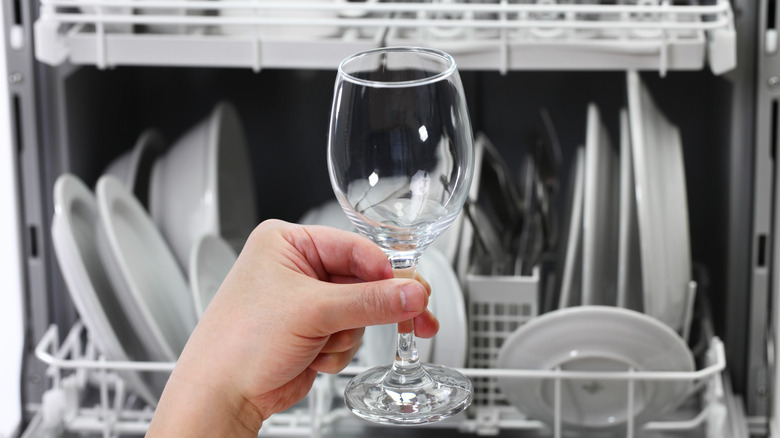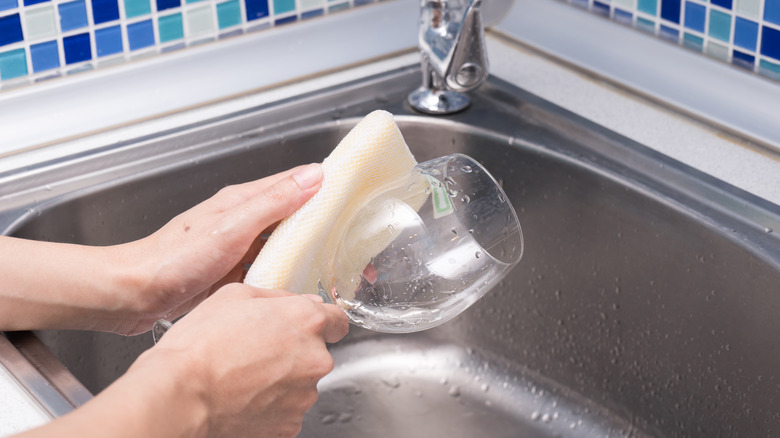When To Use A Dishwasher Vs Your Hands To Clean Glassware
Whether you like the convenience of a dishwasher or prefer the traditional route of hand washing your glassware, there's a time and a place for everything. When you're making your choice there are three main factors to consider: cleanliness, efficiency, and durability.
Nine times out of ten, your dishwasher is going to get your glasses cleaner than hand washing could ever hope for. The water in your dishwasher gets significantly hotter than what your hands can handle and the hot water is going to kill any bacteria that might be on your glassware. Hand washing means the water isn't hot enough to disinfect the glass and don't forget the towel or sponge you use to clean with is also home to bacteria that can transfer to the glassware. If you have an old dishwasher that isn't very powerful, that's something to consider but most functioning dishwashers will be more effective at cleaning than hand washing.
If the environment is important to you, dishwashers are also much more energy and water-efficient. Hand washing feels more natural, which some people may prefer, but by the numbers, dishwashers are greener. They use significantly less water than even the most scrupulous hand washers. As for energy, it seems counterintuitive since dishwashers require electricity and your hands don't, but the energy saved by doing things manually is offset by the extra water hand washing uses.
Sometimes hand washing is better
Despite the clear advantages that dishwashers have over hand washing, there are times when you'll want to hand wash your glassware. Notably, if your glassware is expensive or fragile you would be smart to keep it out of the dishwasher. While dishwashers are better at cleaning, they can also be rough on the contents inside. It's not uncommon for wine glasses and other thin glassware to emerge from the dishwasher cracked or chipped. If you want to extend the lifespan of your glassware, consider hand washing it. You should also check to see if your glassware is labeled as dishwasher safe. Thin pieces of glass like wine glasses, cocktail glasses, and brandy snifters are better washed by hand.
Remember that if you do put your glassware in the dishwasher, you should place them between the prongs (called tines), not over them. They may look like they are there to keep the glasses from moving around, and they are, but only when they are placed between them. Glassware that hasn't been properly placed is a poor use of space and can lead to water spots.

